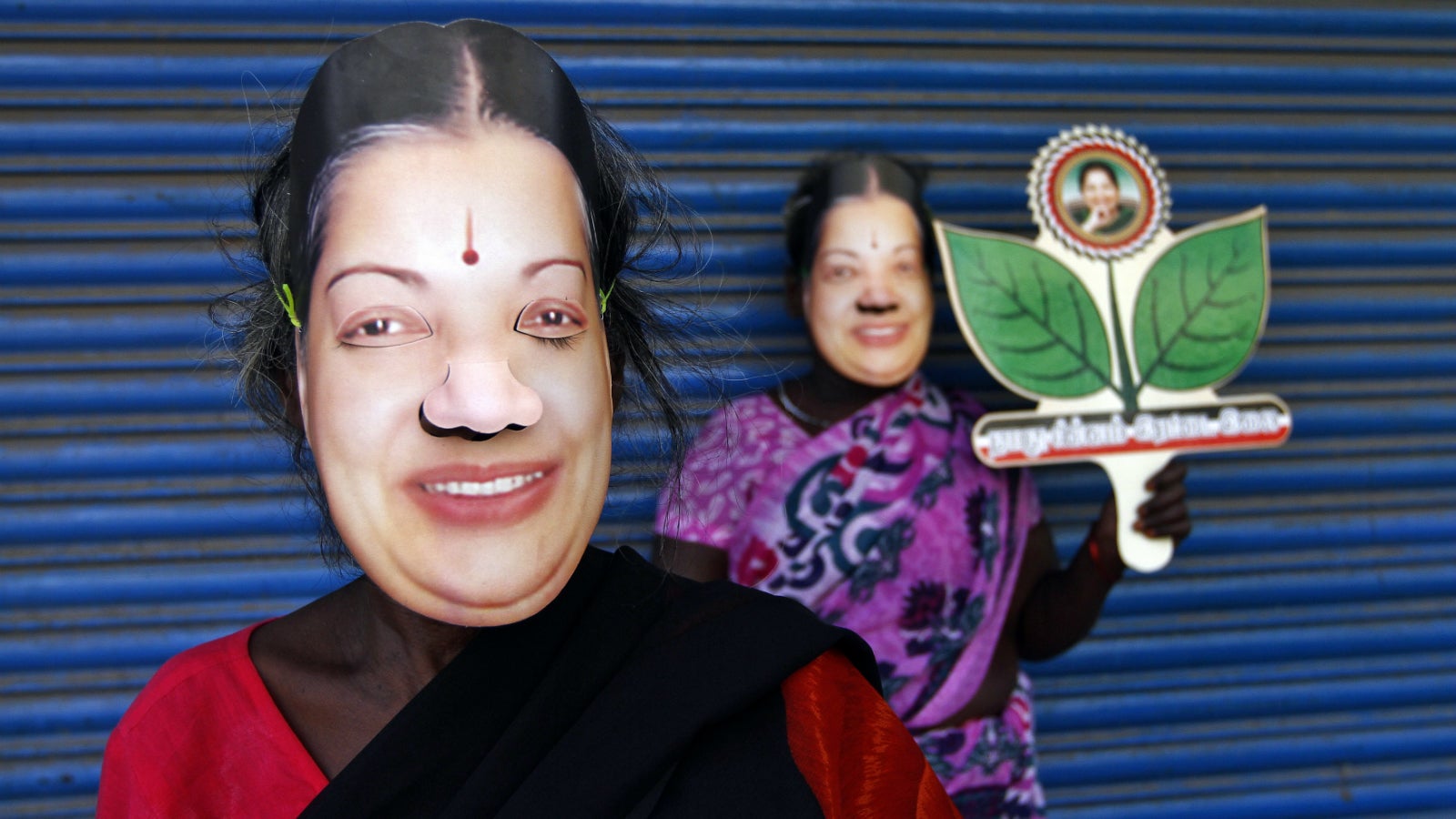From free TV sets to 4G smartphones, how to win some elections in India
It’s poll time again in India. Five Indian states—Assam, Tamil Nadu, Kerala, West Bengal and Puducherry—are either voting right now or will do so in the next few weeks, electing 824 legislators in the process.


It’s poll time again in India. Five Indian states—Assam, Tamil Nadu, Kerala, West Bengal and Puducherry—are either voting right now or will do so in the next few weeks, electing 824 legislators in the process.
Southern India’s Tamil Nadu, home to 72 million people, has for 49 years chosen only between the Dravida Munnetra Kazhagam (DMK) and the All India Anna Dravida Munnetra Kazhagam (AIADMK)—two parties with massive ethnic Dravidian support bases.
Over the last 32 years, neither has won consecutive elections. The AIADMK—led by J Jayalalithaa—is the incumbent, having won in 2011. Five years before that, the DMK, under K Karunanidhi, swept the polls after announcing a series of freebies for voters such as television sets and rice at Rs2.
This is keeping with a longstanding trend. “The freebie culture in Tamil Nadu dates back to the 1960s when C Annadurai announced a kilogram of rice for Re1,” C Lakshmanan, associate professor, Madras Institute of Development Studies, Chennai, said. “Subsequently, the DMK government under Karunanidhi gave free spectacles, cycle rickshaws. Even the MG Ramachandran government offered free dhotis and sandals to woo voters.”
Over the years, the value of the gifts distributed seems to have gone up.
This year, the DMK has promised free smartphones, 3G/4G connections, and loan waivers, besides complete prohibition. The AIADMK has, so far, not promised any new freebies, although it has backed prohibition in phases.
Instead, the AIADMK is betting on its achievements of the past five years, which also include a list of gifts.
After coming to power in 2011, for instance, the party doled out free laptops and television sets. Jayalalithaa’s government then set up a string of government-run facilities such as eateries and pharmacies that gave away subsidised food and medicines. These establishments were often given the prefix Amma (mother)—a term often used for Jayalalithaa herself. The Amma Unavagams (canteens), for example, charge as little as Rs3 ($0.045) for a plate of curd rice. The Amma brand of cement, launched by her government, cost Rs190 a bag, while the price in the open market is almost twice that at Rs370 a bag.
The trend has worrying implications, though.
“There is no doubt that the culture of freebies has resulted in the depoliticisation of citizens in Tamil Nadu,” A Narayanan, a social activist and editor of the Tamil magazine Paadam, told the Hindu newspaper in 2014. “By providing candies to the voters in the form of free this and that, the masses have become dependent on the ruling class with the result that there is no true empowerment. This has resulted in the people not being able to critically evaluate their own leaders.”
Freebies announced since 2006:
The DMK, according to some estimates, spent over Rs3,340 crore ($503 million) over five years on 15 million television sets, with each costing an average of Rs2,456 ($37). The AIADMK, on its part, spent Rs2,000 crore ($301 million) on mixers, grinders and table fans to over 3.5 million beneficiaries in 2013. In 2014-15, another Rs1,250 crore ($188 million) was spent on the scheme to extend it to more voters.
“The DMK and AIADMK are a result of the Dravidian movement which sought a separate state on the basis of linguistic nationalism,” explained Lakshmanan. “But somewhere along the line, these ideologies have taken a backstage. Now, all they look for is quick exploitative mechanism to win people’s votes. By doing that, you are only promoting feudalistic culture and the irony is that people are happy with it.”